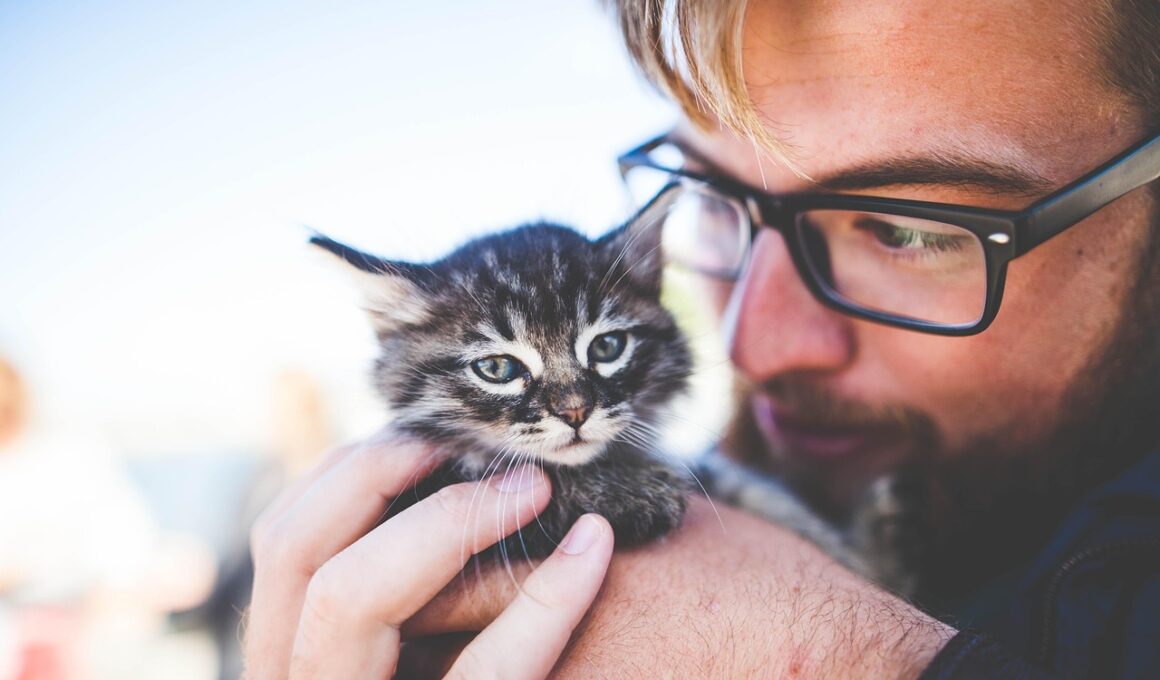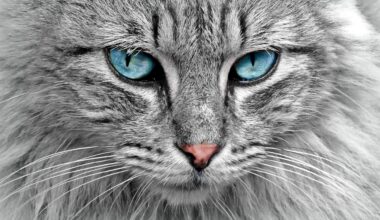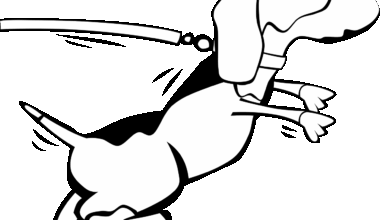How Local Ordinances Affect Cat Owner Liability
For cat owners, understanding local regulations can significantly impact liability. Each jurisdiction has unique ordinances concerning pets that govern how cat owners are responsible for their feline companions. These laws can vary widely, influencing everything from pet ownership to insurance requirements. In many urban areas, strict leash laws may apply, although many cats are permitted to roam freely. A cat roaming may lead to potential incidents, resulting in liabilities for the cat owner. Additionally, local community rules may outline the responsibility of the owner in addressing issues such as nuisance complaints or property damage. Therefore, understanding these laws is essential for pet owners aiming to protect themselves legally. Owners must also consider that, in some areas, certain breeds may be subject to specific regulations imposed by local lawmakers. Staying informed about these stipulations can help cat owners manage their obligations and mitigate risks. However, adhering strictly to these ordinances can ensure a harmonious relationship with neighbors and the community as a whole. Consequently, cat owners should prioritize becoming well-acquainted with their local laws and consult legal professionals when necessary.
Another critical aspect regarding local ordinances is how they can influence pet insurance policies. Insurance companies often adjust coverage based on local laws, meaning that understanding these regulations can impact premiums and liability coverage. For instance, jurisdictions that enforce more stringent rules about pet ownership may see higher rates for liability insurance. As such, cat owners should carefully review their policies and ensure they comply with local statutes. Additionally, many insurers require proof of compliance with ordinances when processing claims. Therefore, cat owners should document their actions to remain compliant, as it can significantly affect their claims. Moreover, some insurance policies may include specific exclusions if the pet is not maintained according to local guidelines. In cases where a cat is involved in an incident due to the owner’s disregard for these laws, claims can be denied. Additionally, the potential for increased premiums or inability to secure coverage exists without understanding these requirements. Consulting with insurance agents can provide insights into regional variables affecting coverage. Thus, pet owners need to be proactive in understanding both local laws and their respective insurance policies.
Liability Considerations
Liability can manifest in various ways, and local ordinances will define how a pet owner is responsible. In situations where a cat causes injury or damages property, local laws will dictate how liability is assessed. Some regions adopt a strict liability standard, meaning cat owners are automatically liable regardless of negligence. Under such laws, if a cat were to injure another pet or human, the owner could be held responsible without a requirement for proving fault. Conversely, certain localities may follow a negligence standard, allowing potential defenses for the owner if they took reasonable precautions to prevent their cat from causing harm. This dynamic emphasizes the importance of proactive measures, such as keeping a cat indoors or supervised outside. Additionally, cat owners might be encouraged to socialize their pets responsibly, reducing the risk of outbursts. Being aware of how different jurisdictions approach liability can help owners alter their behaviors accordingly. This understanding not only protects the owner legally but encourages a sense of responsibility toward maintaining peace within the community. Consequently, awareness of local laws fosters a more harmonious environment for both pets and people.
Understanding local ordinances also assists pet owners in recognizing potential legal defenses. Laws may designate specific circumstances under which owners can assert defenses against liability. For instance, if another pet provokes a cat, owners may be able to assert that they should not be held accountable for the cat’s response. Moreover, understanding ordinances can assist owners in identifying potential claims against them before they result in litigation. In many places, mediation or neighborhood disputes can be resolved through amicable discussion rather than legal consequences. Owners who maintain a good rapport with their neighbors can often navigate these issues more smoothly. Therefore, detailed knowledge of local organizations and community resources enhances a cat owner’s effectiveness in addressing disputes or issues with nearby residents. Furthermore, familiarity with local ordinances promotes understanding and cooperation within the neighborhood. Recognizing the expectations set forth by local governments allows pet owners to be conscientious and considerate of those living close by. Thus, possessing adequate knowledge on this subject can prove exceptionally valuable when navigating challenges related to pet ownership.
Community Engagement and Responsibility
Community engagement plays a fundamental role in how local ordinances affect cat ownership. In many neighborhoods, active participation in community forums or homeowners’ associations can guide pet owners in understanding their responsibilities better. Attending local meetings and staying informed about ongoing discussions on pets can help cat owners stay ahead of potential issues. By actively engaging with the local community, pet owners can express their needs while also hearing the concerns of others. Additionally, strong community connections can facilitate collaboration among pet lovers, leading to enhanced resources like pet parks and playgroups. Moreover, a proactive pet owner could influence local legislation by providing feedback to local councils on pet regulations. When cat owners unite, their voices can lead to more pet-friendly policies that benefit everyone. Local ordinances often reflect community values, so by participating actively in these discussions, cat owners can help shape the landscape of pet ownership. In turn, this helps create a culture of responsible pet ownership that aligns with community standards. Ultimately, fostering a sense of community can empower cat owners and enhance the overall pet ownership experience.
Furthermore, educating oneself about local ordinances can lead to a decrease in conflicts with fellow community members. Many disputes arise from misunderstandings related to pet behavior or ownership rules. Being fully aware of these laws allows owners to correct misconceptions before they escalate into larger issues. For example, if a cat is perceived as a nuisance, understanding laws that pertain to noise or freedom of movement can enable owners to address complaints effectively. Additionally, proactive owners often find that by emphasizing adherence to local laws, they might improve their reputation within the neighborhood. This proactive approach to conflict resolution fosters a better relationship with neighbors and promotes a more harmonious living environment. Pet owners should take the initiative to discuss these matters openly with their neighbors when issues arise, establishing a constructive dialogue around expectations and boundaries. Therefore, investing time in understanding local regulations will reap benefits beyond legal implications—it can enhance community bond and collaboration. A culture of awareness generates a sense of belonging, ensuring that cat ownership remains a joyful experience for owners and their communities alike.
The Importance of Documentation
Finally, keeping accurate documentation can be beneficial for cat owners. By recording incidents, neighbor communications, and compliance actions, owners create a substantial record to support their liability framework. This documentation can serve multiple purposes; it may assist in validating claims with insurers or proving adherence to local ordinances in legal disputes. Such records can clarify the timeline of events and provide context if any unexpected issues arise involving the pet. Moreover, in regions where nuisance laws apply, documenting any complaints from neighbors can be beneficial if the owner must offer a defense. Maintaining these documents encourages proactive behavior; it allows owners to review their practices and make adjustments as necessary to comply with evolving regional regulations. Together with community engagement, strong documentation equips pet owners to advocate for their position effectively. By keeping thorough records, owners reinforce their commitment to responsible pet ownership while helping to establish proactive relationships with their neighbors. In turn, this practice contributes to reduced liability risks while enhancing overall community relations, fostering a positive environment for pet ownership.
Ultimately, as local ordinances continue to evolve, pet owners face new challenges and opportunities. Understanding these changes equips cat owners with the tools they need to navigate their responsibilities effectively. Local ordinances can directly affect liability, coverage, and community dynamics, making it crucial for cat owners to stay informed and engaged. Consequently, responsible pet ownership requires continual education and proactive involvement. By remaining aware of local laws and guidelines, pet owners can foster better relationships with their communities while also protecting themselves from legal consequences. As pet ownership grows, the expectations placed upon owners will likely shift, necessitating an ongoing commitment to understanding and following local regulations. Owners are encouraged to find information through local government websites, community meetings, and pet owner groups, ensuring that they stay updated on potential changes. In conclusion, local ordinances do not merely represent rules; they reflect community values and standards that impact the way owners engage with their pets. Committed cat owners will strive to align with local regulations, benefiting not only themselves but also contributing positively to their neighborhoods.


